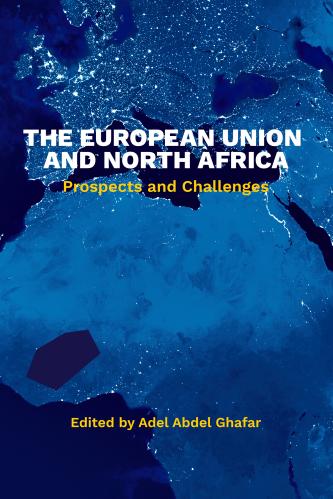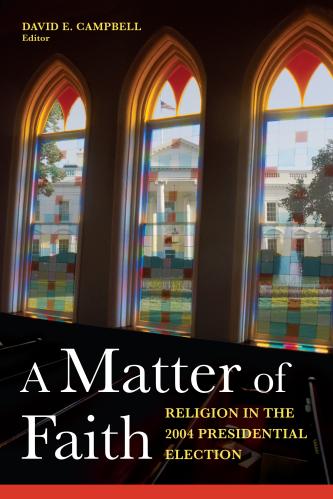Despite being required to step down after his second term ended in 2016, Congo’s President Joseph Kabila, relying on a dubious reading of the constitution, remains in office today. Elections that were due last year did not occur, and new elections are now set to take place by the end of 2017. However, there is plenty of reason to question whether that will happen.
In the interim, President Kabila was to lead a transitional government, yet talks on that have broken down. As protests of his continued rule surge, violence is also increasing.
On April 10, the Africa Security Initiative hosted an event focused on the Democratic Republic of Congo. Panelists included Dane Erickson, managing director of the Eastern Congo Initiative; Nita Evele, director of Congo Global Action; and Anthony Gambino, executive director of the Panzi Foundation USA and former USAID mission director for Congo. Michael O’Hanlon, Brookings senior fellow, moderated the discussion.
The road to here
Anthony Gambino explained how Congo got to where it is. He pointed out that President Kabila took power after his father’s assassination in 2001 and later set up a transitional government in 2003. He won the presidency in what was deemed a reasonably free and fair election in 2006.
Gambino discussed how the Congo’s constitution, penned in 2005, set up a two-term limit for president. As such, Kabila’s second and final election came in 2011. Unlike the first election, “observers were unable to say who actually won,” said Gambino. Kabila was declared president, but as Gambino related, the consensus among observers was that “it failed the basic test of free and fair elections.”
In the past two years, Gambino noted, preparations for new elections were not undertaken seriously. He mentioned the French word “glissement,” which is used in the country to explain the problem. It refers to a “sliding,” which has been the strategy of Kabila and his supporters: slide past scheduled dates when key electoral events were supposed to occur in order to maintain power.
Further, Kabila and his supporters have reinterpreted the constitution wrongly, Gambino noted. He said they have argued that “if you don’t have presidential elections, the sitting president is legitimately in power indefinitely.” Most observers dispute this, and Kabila has been president outside the constitutional authority since December, argued Gambino.
On term limits, O’Hanlon later interjected that “the United States would have never tolerated President Hamid Karzai in Afghanistan having a third term,” for example. Instead, Karzai was told that to remain in favor of the international community and continue receiving aid, “he was going to have to respect the process.” He wondered if it was time for a similar doctrine vis-à-vis Congo: “if you want American aid, you must respect a maximum of two terms.” That could be the hard rule or default, but with potential waivers and exemptions, he said.
Crisis of new proportions
Nita Evele stated in no uncertain terms that Congo is in crisis, adding that while it’s not the first time, this case is particularly troublesome. The constitution “is now void because there have been no elections,” she said, adding that if the constitution is void, so are the laws.
On who is responsible, Evele said everyone involved shares some blame, although the international community has been particularly blind to the situation. In a series of excuses, international figures claimed Kabila was young and inexperienced, then that he was not in control, and so on. Evele argued he has been in control the whole time.
Part of the problem is that Congo is not taken seriously, stated Evele. In other countries, election issues that are similar to those leading to Kabila’s second term have occurred, and the international community rallied for the elections to be redone or for the losing candidate to step aside, as in Ivory Coast. In this case, nothing was done after the election, and nothing is done as violence increases.
In addition to publicly crushing the opposition, Kabila’s forces are widely blamed for 23 mass graves found at Kasai in the south of the country. Many believe Kabila is attempting to start a war to keep elections from happening. Even foreign experts, including an American and a Swedish citizen, “were not kidnapped, they were murdered” in Kasai, said Evele.
Beyond politics
Dane Erickson reminded the audience that while elections are the most important issue in Congo right now, even if they were held this year it would not be a panacea for all of the current political, security, and economic challenges facing the country. He stated: “we need to focus on this issue, but it will not solve everything in Congo.” Much of the recent violence has been driven by local grievances exacerbated by uncertainty at the national level; across the country, these events show that security sector reform remains an important issue.
Erickson turned to the economy: Until a slowdown over the past two years, Congo was one of the fastest-growing economies in the world, but a drop in world commodity prices hurt the economy. It is one of the poorest countries on earth, which fosters instability. Moreover, a rapid depreciation of the Congolese Franc in the last year has made basic items like food and fuel increasingly expensive for the population, he said.
U.S. role?
Thinking about the future, O’Hanlon asked the panelists what the policy options might be in Congo. Gambino pointed out that there are still no senior officials from the new U.S. government appointed to work on the region. There is no ambassador; there is not even a nominee yet. This is part of why the current American response is, in Gambino’s view, a “disgrace.”
[S]some in the new U.S. administration want to leave. If the United States did that, “we would see a collapse of Congo,” said Gambino.
When it comes to peacekeeping operations in Congo, Gambino identified U.N. Ambassador Nikki Haley as a moderate voice who, fortunately, has prevailed thus far. Despite concerns of major peacekeeping cuts, the United Nations will keep a roughly 16,000-person force in Congo for now. He reminded the audience that the future is perilous and some in the new U.S. administration want to leave. If the United States did that, “we would see a collapse of Congo,” said Gambino.
Concurring, Erickson said that the Trump administration has not yet been particularly engaged in the region, but he hoped that would change. He called on the U.S. leadership to remember that the United States has played an important role in the country and region, warning of the forming vacuum. As the United States pulls back, he said, others are following.
In her closing remarks, Evele made a case for intervention. She specifically mentioned intervention in Sierra Leone and Liberia by President George W. Bush. “I think intervention is exactly what the Congolese are asking here,” Evele stated. She pointed to the Liberia case with President Bush and rebel-leader-turned-president Charles Taylor: Taylor was at the time threatening war, but stood down amidst a statement from Bush indicating a willingness to send U.S. forces into the region.
When it comes to Kabila, Evele believes time is up. She stated: “no more talks, no more accord. We have to give him a benchmark.”
The Brookings Institution is committed to quality, independence, and impact.
We are supported by a diverse array of funders. In line with our values and policies, each Brookings publication represents the sole views of its author(s).







Commentary
Understanding the constitutional crisis in Congo
April 17, 2017